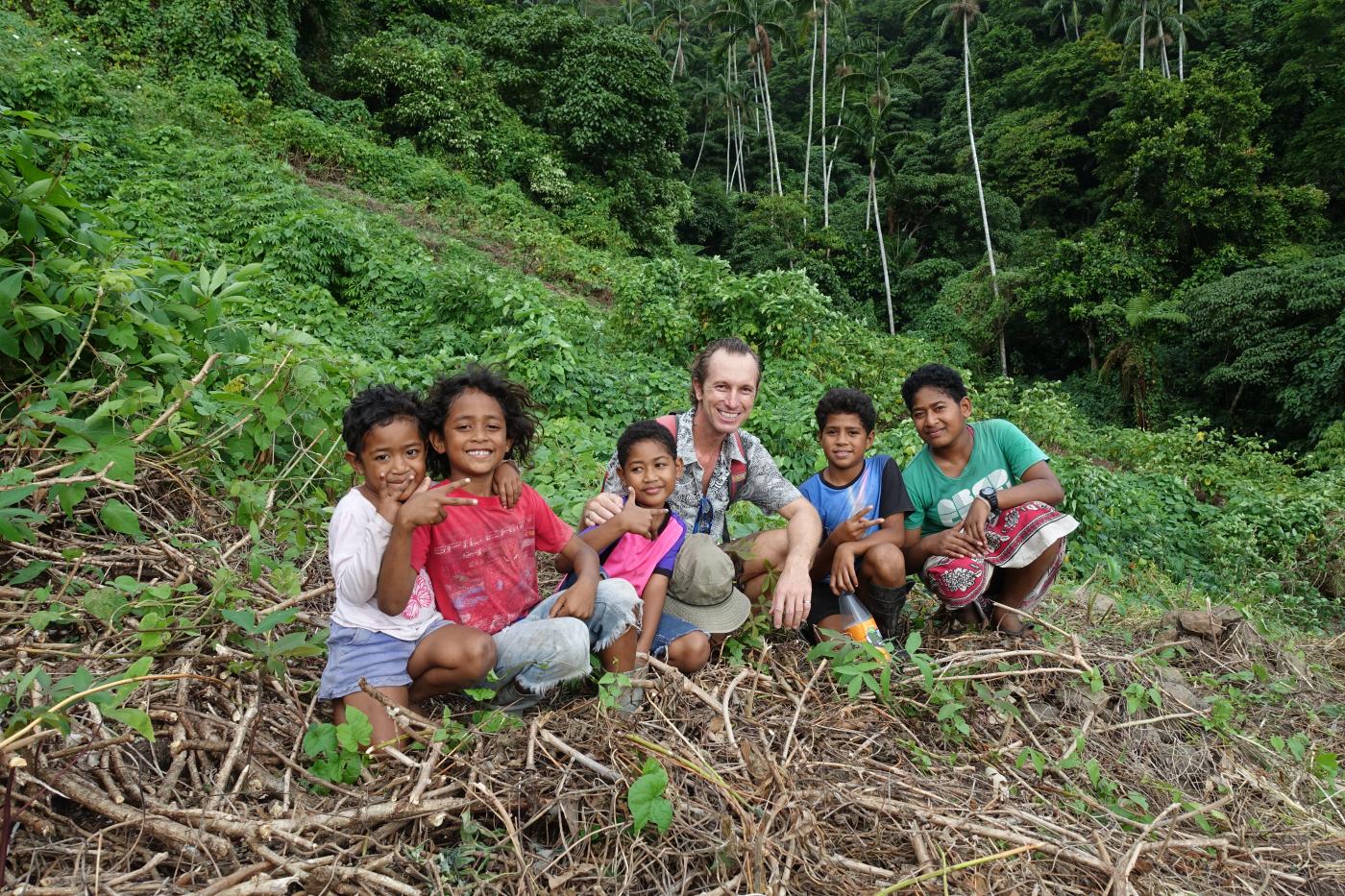Unlike French Polynesia, where the rich colonial mother country France finances a very advanced level of infrastructure, Fiji is independent and has to fend for itself.
Outer islands like Matuku (where we’ve spent one and a half weeks now) have no airport and the supply ship only calls once a month. The shop here is very basic and has run out of sugar weeks ago…Sat images show roads, but that was some iniative several years ago and they have been blown over by cyclones, washed away by rains and are overgrown by now. Some villages have a limited power supply through recently installed solar panels, others only have a generator that’s run a couple of hours per day. There’s no mobile phone network and only the school has wifi.
The island is fertile though, each family has a garden, where kassava (maniok), sweet potatoes, taro and cabbage are grown. Bananas and papayas are abundant and in summer they will harvest mangoes, melons, avocados, etc.
Everybody goes fishing and meat is only available when the villagers occasionally slaughter a cow or goat. The people here automatically live on a much healthier diet as if they could buy burgers and fries in the shop…
Due to the lack of electricity the villagers don’t have big freezers where they could store fish for export, so the reefs are not badly overfished and still teeming with life.
As there is no mobile phone connection, the kids don’t spend their days glued to their smartphones, but play with each other out in nature.
Matuku may look poor at first sight, but it’s rich in wildlife, village culture and quality of life.







